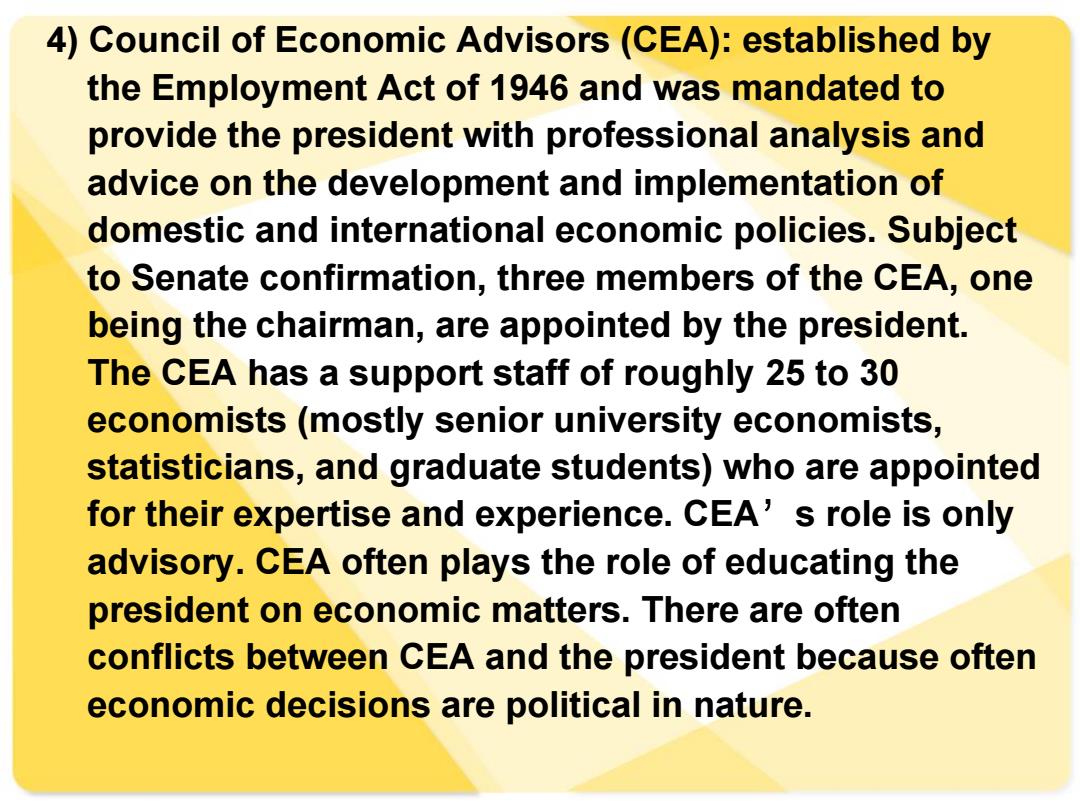
4)Council of Economic Advisors(CEA):established by the Employment Act of 1946 and was mandated to provide the president with professional analysis and advice on the development and implementation of domestic and international economic policies.Subject to Senate confirmation,three members of the CEA,one being the chairman,are appointed by the president. The CEA has a support staff of roughly 25 to 30 economists(mostly senior university economists, statisticians,and graduate students)who are appointed for their expertise and experience.CEA's role is only advisory.CEA often plays the role of educating the president on economic matters.There are often conflicts between CEA and the president because often economic decisions are political in nature
4) Council of Economic Advisors (CEA): established by the Employment Act of 1946 and was mandated to provide the president with professional analysis and advice on the development and implementation of domestic and international economic policies. Subject to Senate confirmation, three members of the CEA, one being the chairman, are appointed by the president. The CEA has a support staff of roughly 25 to 30 economists (mostly senior university economists, statisticians, and graduate students) who are appointed for their expertise and experience. CEA’s role is only advisory. CEA often plays the role of educating the president on economic matters. There are often conflicts between CEA and the president because often economic decisions are political in nature
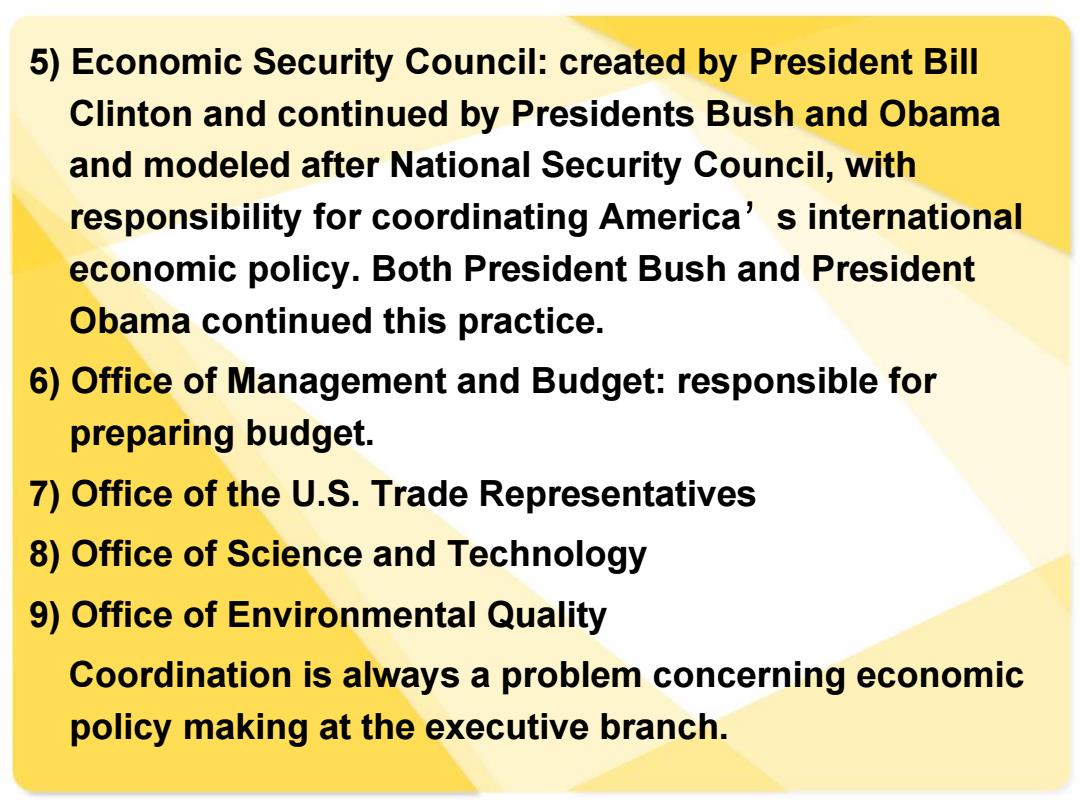
5)Economic Security Council:created by President Bill Clinton and continued by Presidents Bush and Obama and modeled after National Security Council,with responsibility for coordinating America's international economic policy.Both President Bush and President Obama continued this practice. 6)Office of Management and Budget:responsible for preparing budget. 7)Office of the U.S.Trade Representatives 8)Office of Science and Technology 9)Office of Environmental Quality Coordination is always a problem concerning economic policy making at the executive branch
5) Economic Security Council: created by President Bill Clinton and continued by Presidents Bush and Obama and modeled after National Security Council, with responsibility for coordinating America’s international economic policy. Both President Bush and President Obama continued this practice. 6) Office of Management and Budget: responsible for preparing budget. 7) Office of the U.S. Trade Representatives 8) Office of Science and Technology 9) Office of Environmental Quality Coordination is always a problem concerning economic policy making at the executive branch
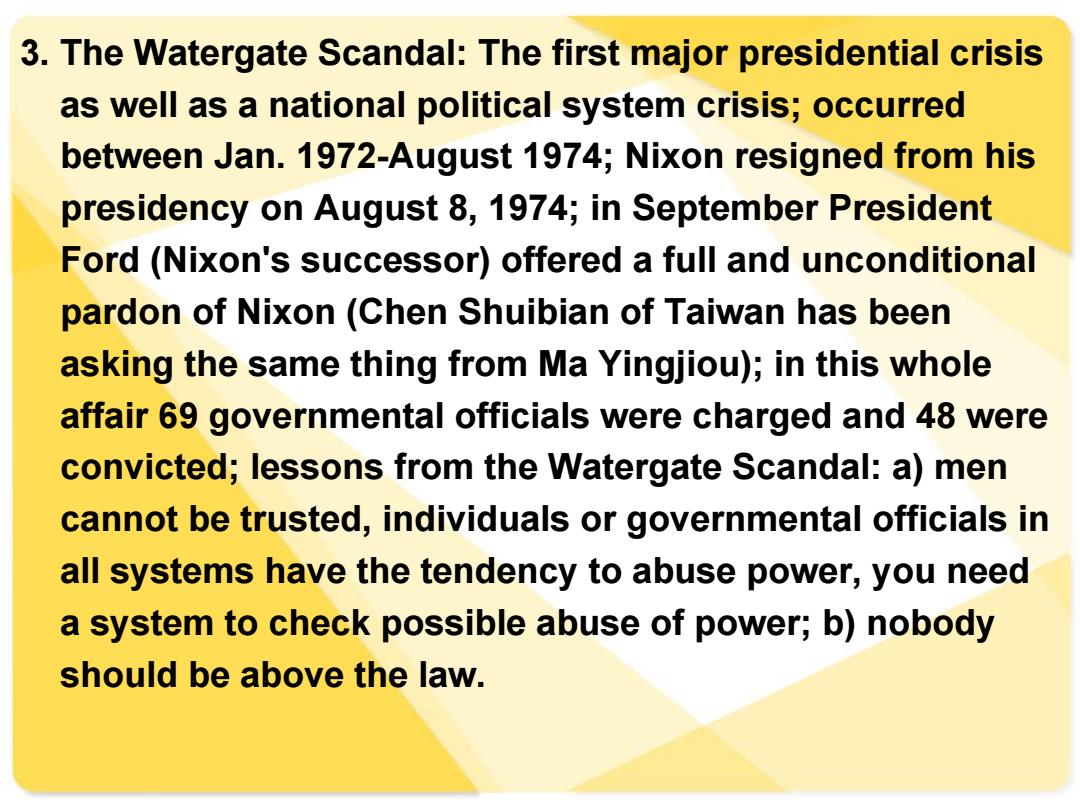
3.The Watergate Scandal:The first major presidential crisis as well as a national political system crisis;occurred between Jan.1972-August 1974;Nixon resigned from his presidency on August 8,1974;in September President Ford (Nixon's successor)offered a full and unconditional pardon of Nixon(Chen Shuibian of Taiwan has been asking the same thing from Ma Yingjiou);in this whole affair 69 governmental officials were charged and 48 were convicted;lessons from the Watergate Scandal:a)men cannot be trusted,individuals or governmental officials s in all systems have the tendency to abuse power,you need a system to check possible abuse of power;b)nobody should be above the law
3. The Watergate Scandal: The first major presidential crisis as well as a national political system crisis; occurred between Jan. 1972-August 1974; Nixon resigned from his presidency on August 8, 1974; in September President Ford (Nixon's successor) offered a full and unconditional pardon of Nixon (Chen Shuibian of Taiwan has been asking the same thing from Ma Yingjiou); in this whole affair 69 governmental officials were charged and 48 were convicted; lessons from the Watergate Scandal: a) men cannot be trusted, individuals or governmental officials in all systems have the tendency to abuse power, you need a system to check possible abuse of power; b) nobody should be above the law
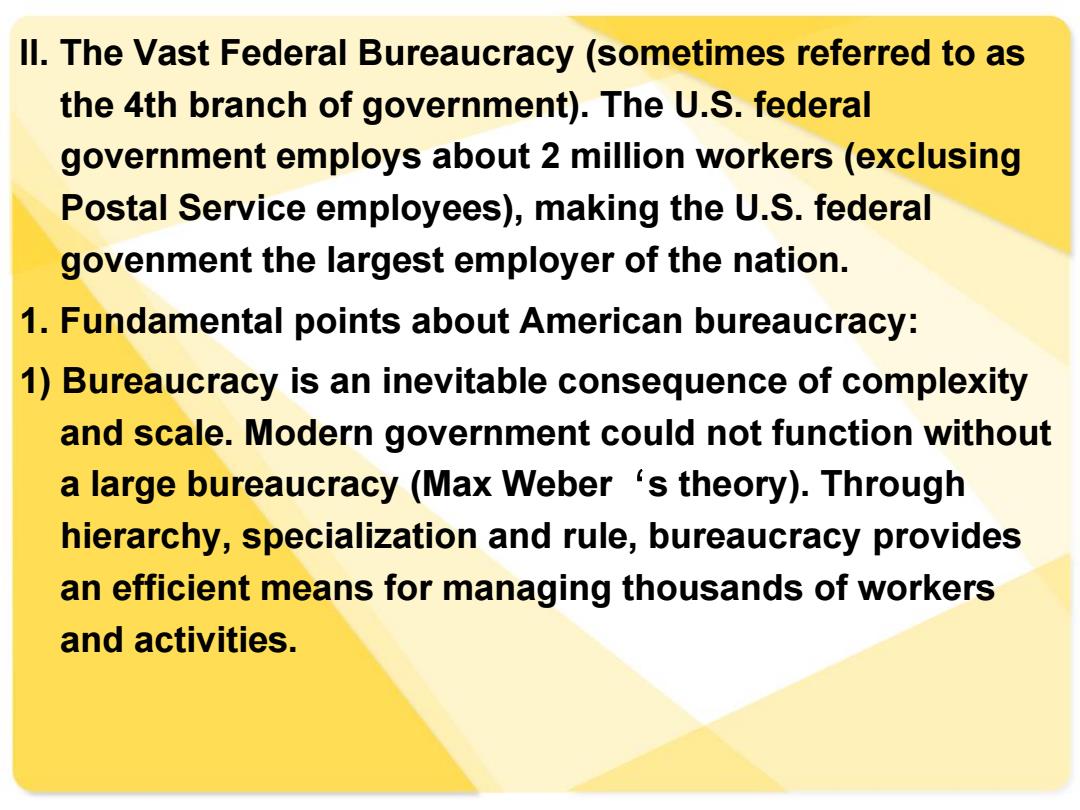
ll.The Vast Federal Bureaucracy (sometimes referred to as the 4th branch of government).The U.S.federal government employs about 2 million workers(exclusing Postal Service employees),making the U.S.federal govenment the largest employer of the nation. 1.Fundamental points about American bureaucracy: 1)Bureaucracy is an inevitable consequence of complexity and scale.Modern government could not function without a large bureaucracy(Max Weber 's theory).Through hierarchy,specialization and rule,bureaucracy provides an efficient means for managing thousands of workers and activities
II. The Vast Federal Bureaucracy (sometimes referred to as the 4th branch of government). The U.S. federal government employs about 2 million workers (exclusing Postal Service employees), making the U.S. federal govenment the largest employer of the nation. 1. Fundamental points about American bureaucracy: 1) Bureaucracy is an inevitable consequence of complexity and scale. Modern government could not function without a large bureaucracy (Max Weber‘s theory). Through hierarchy, specialization and rule, bureaucracy provides an efficient means for managing thousands of workers and activities
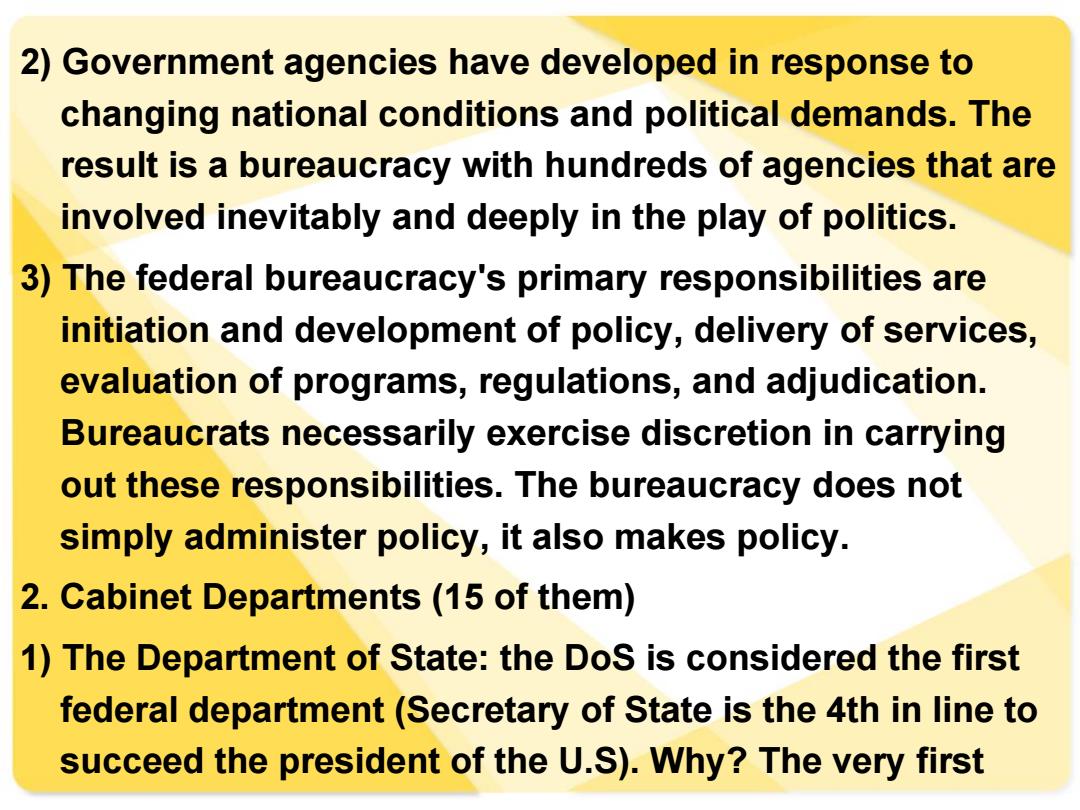
2)Government agencies have developed in response to changing national conditions and political demands.The result is a bureaucracy with hundreds of agencies that are involved inevitably and deeply in the play of politics. 3)The federal bureaucracy's primary responsibilities are initiation and development of policy,delivery of services, evaluation of programs,regulations,and adjudication. Bureaucrats necessarily exercise discretion in carrying out these responsibilities.The bureaucracy does not simply administer policy,it also makes policy. 2.Cabinet Departments(15 of them) 1)The Department of State:the Dos is considered the first federal department (Secretary of State is the 4th in line to succeed the president of the U.S).Why?The very first
2) Government agencies have developed in response to changing national conditions and political demands. The result is a bureaucracy with hundreds of agencies that are involved inevitably and deeply in the play of politics. 3) The federal bureaucracy's primary responsibilities are initiation and development of policy, delivery of services, evaluation of programs, regulations, and adjudication. Bureaucrats necessarily exercise discretion in carrying out these responsibilities. The bureaucracy does not simply administer policy, it also makes policy. 2. Cabinet Departments (15 of them) 1) The Department of State: the DoS is considered the first federal department (Secretary of State is the 4th in line to succeed the president of the U.S). Why? The very first